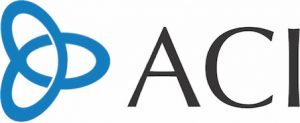FinOp Registration, Eligibility & Requirements
Is a designated in-house FinOp or a FinOp consultant better for your team?
Most industry experts are aware of FINRA’s requirements for every broker dealer to register a licensed Financial and Operations Principal (FinOP). The FinOp qualification is obtained by passing one of two examinations, the Series 27 or the Series 28. Both industry exams are sponsored by FINRA, as the Self-Regulatory Organization (SRO) that oversees entities engaging in transaction-based securities activities and reports directly to the Securities and Exchange Commission (SEC).
When it comes to FinOp qualification exams, there are two options:
The Series 27 exam is the broader FinOp examination, which permits a license holder to register at a broker dealer of any size and complexity.
The Series 28 exam is effectively a FinOp “light” examination. It is a qualifying exam that permits an individual to oversee the financial books and records only for a more limited-purpose broker dealer, known as an “introducing firm.”
It’s important to note that 90% or more of all broker dealers are introducing firms not carrying firms, so in most instances either qualifying examination would suffice.
Introducing Firms
Non-carrying firms, those who do not hold customer funds or clear customer trades, are known as introducing firms. These types of securities firms generally have net capital requirements of $5,000, $50,000 or $100,000. They are permitted to register a Series 27 or a Series 28 licensed FinOp to oversee securities transactions that generally do not put customers at risk or involve customer protection obligations.
Carrying Firms
Carrying or clearing firms are held to a higher regulatory standard and are required to maintain a net capital requirement of at least $250,000. The FinOps at these firms must possess the Series 27 license. They cannot register utilizing the Series 28 license, due to the heightened obligations of customer protection under FINRA Rule 15c3-3.
Additionally effective as of October 1, 2018, all carrying firms are required to designate two registered FinOps that fill two distinctly separate roles within a larger and more complex entity. These roles are the Principal Financial Officer (PFO) and the Principal Operations Officer (POO). The responsibilities of these two individuals should be clearly defined within a member firm’s Written Supervisory Procedures (WSPs).
With the PFO responsible for:
- Generally accepted accounting principles or GAAP financial reporting
- Net capital computations
- Preparation of the regulatory (FOCUS and SSOI) filings
The POO responsible for:
- 15c3-3 customer reserve computations
- Oversight of operational flow of funds and activities
It should be noted that with regard to either license, the registered FinOp (PFO or POO) is expected by FINRA to have either one year of direct or two years of indirect experience in a similar role (in addition to the requisite exam) to be properly qualified to fill the respective supervisory positions. This is particularly important during the New Member Application (NMA) process, when a firm is applying for membership and must list the names and qualifications of their intended supervisors post-regulatory approval.
If a firm submits an application for membership whereby the named principals do not have such experience, it is common, and expected, for the FINRA Membership Application Division (MAP) to reject this individual from serving in such a role. FINRA will generally require the applicant to either find a properly qualified replacement FinOp or they may allow the firm to engage an outside consultant to support the FinOp. This is to help ensure that the firm does not fail to fulfill their post-approval regulatory duties.
One additional consideration
In consideration of a designated FinOp, it is also extremely important to consider the disciplinary history of the individual filling this role. While having regulatory (Form U4) disclosures is not an outright disqualification for serving in these supervisory roles, FINRA does, and should, look at historical infractions as a consideration in the capabilities of any given FinOp to perform his or her duties.
Certainly not all disclosures are equal.
For example, a personal lien is not equivalent to a fraud or customer protection violation. But any regulatory disclosure can impact the overall risk profile of an applying or an existing member firm. This may alter FINRA’s review and diligence for cycle examinations as well as the general overall regulatory oversight of the member firm on an ongoing basis. This often results in lost time and increased cost, both of which could have otherwise been avoided.
If your firm is exploring regulatory membership or a change in your registered FinOp, please reach out to us at info@acisecure.com. We would welcome the opportunity to discuss serving as your registered FinOp and/or supporting your internally designated FinOp.
Authored by Jay Gettenberg, FinOp, CPA, Managing Partner, ACI









